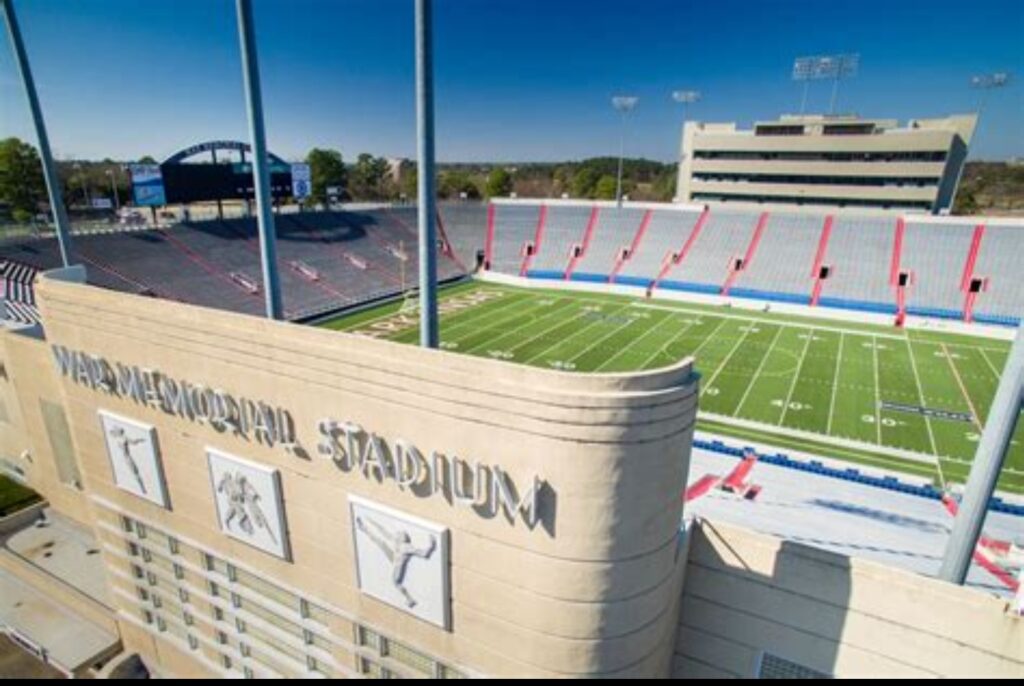War Memorial Stadium in Little Rock, Arkansas, has long been a symbol of the state’s rich football heritage, hosting University of Arkansas Razorbacks games for decades.
However, recent disputes over game allocations have ignited passionate debates among fans, university officials, and local stakeholders, highlighting the complexities of balancing tradition with modern demands.
Historical Significance and Tradition
Since its opening in 1948, War Memorial Stadium has been a central venue for Razorbacks football, offering fans across Arkansas the opportunity to experience games without traveling to Fayetteville. This tradition fostered a statewide sense of unity and pride, with Little Rock games becoming a cherished aspect of Arkansas’s football culture.
Evolving Dynamics and Recent Agreements
In recent years, the University of Arkansas has reevaluated its commitment to War Memorial Stadium. Factors such as financial considerations, facility upgrades, and recruiting advantages associated with on-campus games have influenced this reassessment. In 2018, an agreement was reached to continue hosting games at War Memorial Stadium through 2024, with specific matchups, including annual games against the University of Missouri, designated for the Little Rock venue.
However, in February 2021, the university amended its contract, opting to move the Missouri games back to Fayetteville. The revised agreement scheduled games against Football Championship Subdivision (FCS) opponents at War Memorial Stadium in 2021, 2023, and 2024, with a historic first-ever matchup against Arkansas State planned for 2025.
Fan Experience and Stadium Challenges
The decision to reduce the number of games in Little Rock has been met with mixed reactions. Many fans cherish the tradition of War Memorial Stadium and express concerns over its potential decline in prominence. Additionally, recent games have been marred by logistical issues, including long lines, water shortages, and ticketing problems, leading to frustration among attendees.
In response, stadium officials have implemented improvements to enhance the fan experience. Measures such as increasing ticket scanners, allowing empty water bottles for refilling, and installing large fans to improve air circulation have been introduced to address previous concerns.
Coaching Perspectives and Recruiting Implications
From a coaching standpoint, the allocation of games has significant implications. Head Coach Sam Pittman has acknowledged the historical importance of playing in Little Rock but also noted challenges, including limited opportunities for recruiting during games held away from the main campus. The NCAA’s restrictions on recruiting activities during off-campus games further complicate the benefits of maintaining a presence at War Memorial Stadium.
Future Outlook and Community Impact
The future of Razorbacks games at War Memorial Stadium remains a topic of active discussion. While the current agreement extends through 2025, with the anticipated game against Arkansas State, university officials and stakeholders continue to evaluate the strategic benefits and challenges of hosting games in Little Rock. Balancing the preservation of tradition with the evolving needs of the football program and fan base is at the forefront of these deliberations.
The community’s attachment to War Memorial Stadium underscores its role beyond just a sports venue; it serves as a cultural landmark that has brought together generations of Arkansans. As decisions are made regarding future game allocations, the sentiments of fans, the economic impact on the Little Rock area, and the legacy of the stadium will undoubtedly play crucial roles in shaping the path forward.
In conclusion, the disputes over game allocations at War Memorial Stadium reflect broader themes of tradition versus progress within collegiate athletics. The resolution of these issues will require careful consideration of historical significance, fan engagement, logistical capabilities, and the strategic objectives of the University of Arkansas’s football program.


